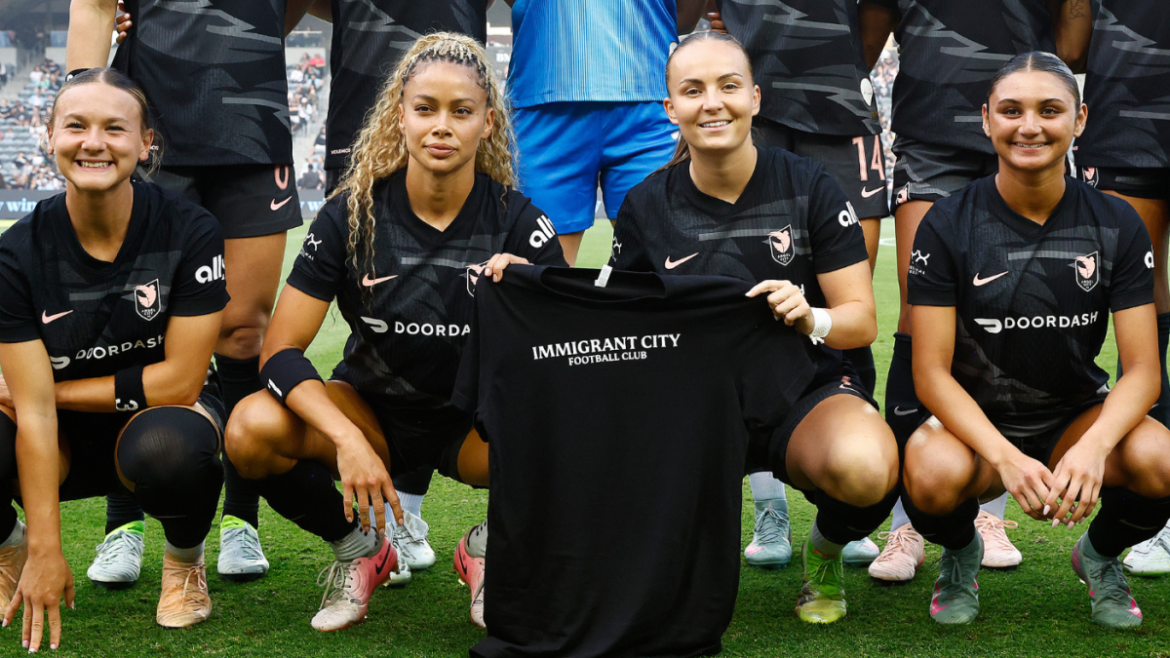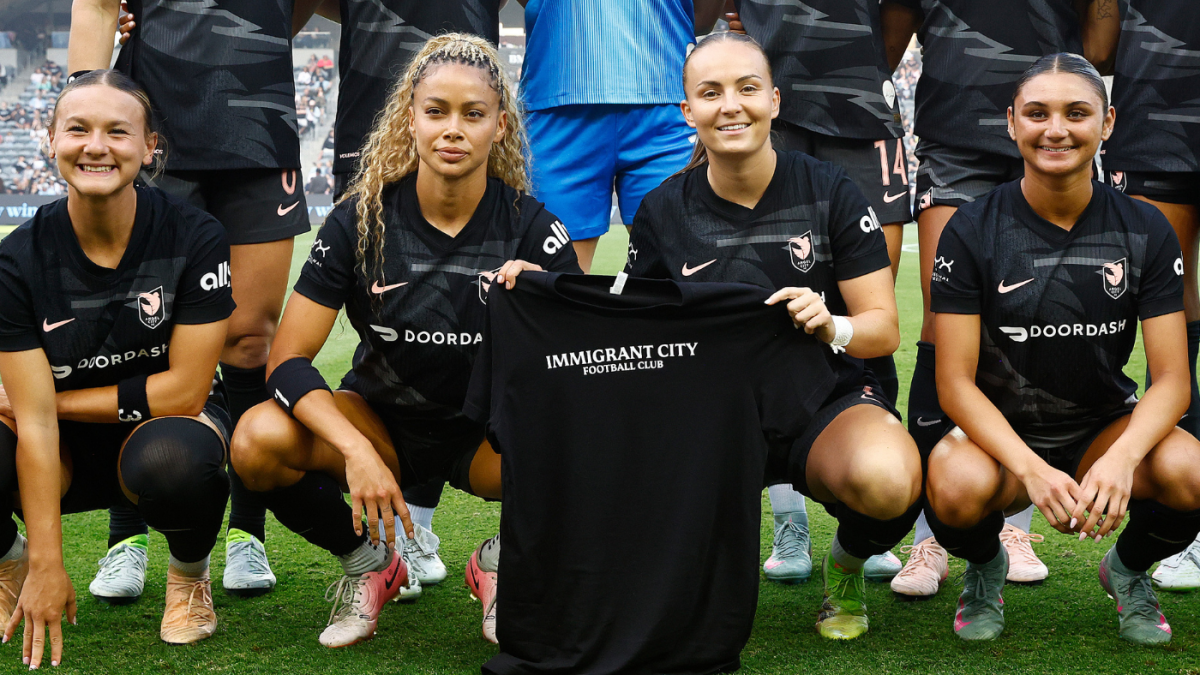Angel City FC’s Bold Stand: “Immigrant City Football Club” Amid Los Angeles Immigration Raids
In recent days, Los Angeles has witnessed a surge of immigration raids by federal authorities, sparking widespread protests and tensions throughout the city. Amid this charged atmosphere, Angel City FC, the National Women’s Soccer League (NWSL) team based in Los Angeles, chose to make an impactful and public statement of solidarity with immigrant communities by adopting a powerful identity: “Immigrant City Football Club.” This act of defiance and support eloquently captures the spirit of a city deeply shaped by immigrants and raises important questions about the role of sports teams as social actors in contentious political moments.
The Context: Immigration Raids and Civic Response in Los Angeles
The immigration raids, conducted by Immigration and Customs Enforcement (ICE), targeted undocumented residents in LA County and surrounding areas, leading to arrests and sparking outrage and protests. Over several days, demonstrators took to downtown LA streets, resulting in confrontations with police, including multiple arrests tied to alleged violent actions such as throwing Molotov cocktails. The raids and the response highlighted the ongoing national debate over immigration enforcement policies, especially in sanctuary cities like Los Angeles.
Interestingly, while many of Los Angeles’ major sports franchises have remained silent on the issue, Angel City FC stepped forward as the first among the city’s 11 major professional teams to publicly support those impacted by the raids.
Angel City FC’s Response: More Than Words
Angel City’s gesture was both symbolic and tangible. On a Saturday home match against the North Carolina Courage, players, staff, and fans donned specially printed T-shirts emblazoned with the phrase “Immigrant City Football Club.” Approximately 10,000 such T-shirts were distributed to fans attending the game, making the stadium a powerful visual statement of inclusion and solidarity. The players wore the shirts as part of their uniform during the warm-up and walkout, signaling unity with immigrant communities before thousands of spectators and a national audience.
This branding serves several functions. It reclaims and reaffirms Los Angeles’ identity as a diverse metropolis built by immigrants, defying narratives that paint immigrants as outsiders or threats. By inserting the word “Immigrant” prominently, Angel City FC positioned itself as a defender of inclusivity and social justice, leveraging the cultural and communal power of sports.
Further amplifying their stance, Becky G, a founding investor of Angel City and a celebrated LA-native, read a heartfelt club statement during the event. The message emphasized that the city’s “fabric is made of immigrants” and urged civic engagement and speaking out against injustice.
The Silence of Other Sports Franchises
Notably, while Angel City FC took this step, other major Los Angeles teams, including the Dodgers, have refrained from issuing statements addressing the immigration raids or expressing solidarity with immigrant communities. This contrast highlights a growing expectation for sports organizations to engage meaningfully in socio-political matters, especially those that affect their fan bases. The Dodgers’ silence has even drawn criticism from fans and commentators who see their reluctance as a failure to stand up for a significant portion of their community.
This divergence underscores Angel City FC’s role as a trailblazer, illustrating how sports can be a platform not only for entertainment but also for activism and social cohesion.
The Impact and Significance of Angel City’s Stand
Angel City FC’s move resonated strongly beyond just the soccer pitch. The visibility of their “Immigrant City Football Club” shirts during a sold-out match communicated solidarity to immigrant Angelenos, many of whom face fear and uncertainty due to the raids. Furthermore, the gesture rallied other organizations and viewers to consider their positions on immigrant rights and local policies.
By publicly supporting immigrants at a moment of crisis and protest, Angel City FC highlighted the potential power of sports entities to influence public dialogue and lend moral support where government action oftentimes falls short. Their actions also invited conversations about the intersection of sports, identity, and politics—a topic growing in relevance in today’s polarized climate.
Looking Forward: The Role of Sports in Social Justice
Angel City FC’s stand raises important questions about how far sports teams and leagues should go in engaging with social issues. With their decision to distribute thousands of T-shirts and lead with symbolic messaging, the club has set a precedent that goes beyond mere lip service. It challenges other teams and leagues to consider their own responsibilities within their communities.
In a world where athletes and teams increasingly recognize their platforms’ power, Angel City FC exemplifies how sports organizations can play a constructive role in social justice movements. Their actions reveal that sports, often seen as escapism, can instead serve as stages for unity, protest, and progressive change.
Conclusion: Angel City FC’s Bold Message Echoes Beyond the Field
Angel City FC’s transformation into “Immigrant City Football Club” amid ongoing immigration raids stands as a vivid declaration of identity, courage, and advocacy. By intertwining their sporting presence with local social realities, Angel City not only supported vulnerable communities but also ignited meaningful public discourse about immigration, belonging, and the civic duties of cultural institutions.
Their initiative transcends a simple shirt slogan; it embodies the ethos of a multicultural, inclusive Los Angeles that refuses to be silenced amidst adversity. As other sports franchises watch and as civic tensions persist, Angel City FC’s actions offer a powerful blueprint for how teams can champion justice and solidarity, reminding all that the game is never just played on the field—it’s lived in the heart of the community.





